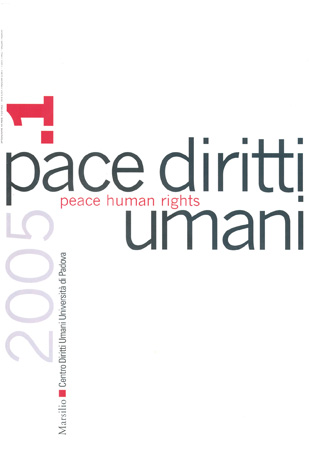Raccolte

Bipolarità dell’organizzazione internazionale: Comunità degli Stati o Comunità dei Popoli?
- Contenuto in
- Pace diritti umani - Peace Human Rights, 1/2005
- Tipologia pubblicazione
- Articolo / Saggio
- Pagine
- 89-106
- Lingua
- IT
Bipolarity of the International Organisation: Community of States or Community of Peoples?Ludovico Matteo Bentivoglio
To pay tribute to the memory of Ludovico Matteo Bentivoglio, Professor of International Law and International organisation, the present issue reproduces the inaugural lecture he gave in 1966 for his class of law of international organisation at the University of Parma. Professor Bentivoglio, one of the most intelligent and creative Italian scholars in the second half of the 20th century, offered in this essay the foundations of his peculiar approach to the studies on the phenomenon of international organisations. He conceives the development of international organisations as the passage from an essentially horizontal system of rights and obligations between States, to a tendentially vertical – albeit fragmentary and discontinuous –system of super-State or extra-State competencies. Here one finds the innovative character of the phenomenon: while in the system of the law of the Community of States, the protection of collective interests is entrusted to the States acting uti universi, the development of international organisations marks the gradual transfer of that function to bodies expressly created by groups of States. Furthermore, Bentivoglio emphasises a second fundamental element of this process: its profound reason is constituted by the emergence of pan-human interests, which require protection at the international level. In his view, this is significantly confirmed in the institutional framework of various organisations by the presence of organs composed of individual acting in their personal capacity. In mid-sixties, Professor Bentivoglio envisaged crucial transformations in the international legal order: he identified two opposite poles of attraction in the new universal Community of Peoples and in the ancient Community of States.

